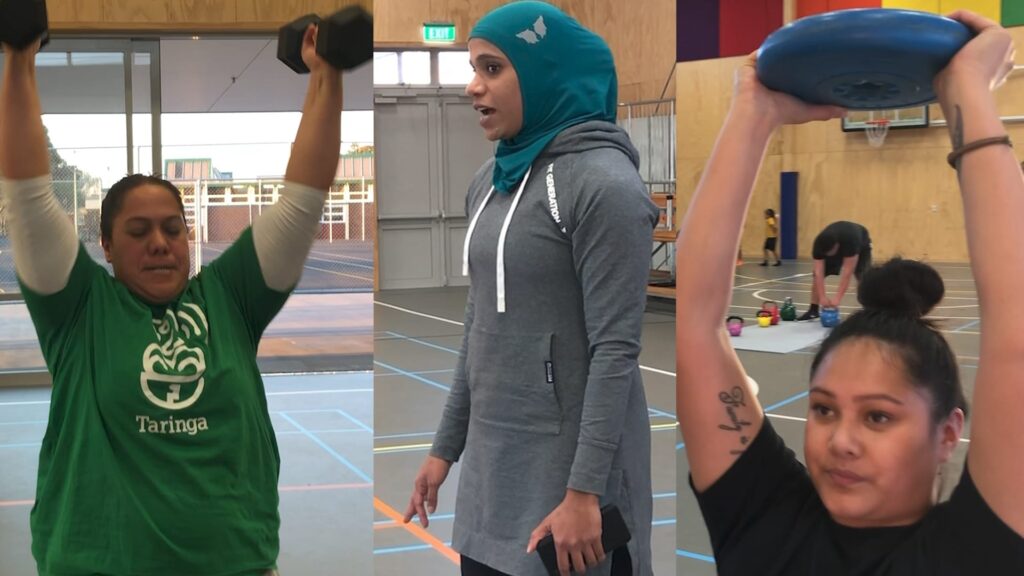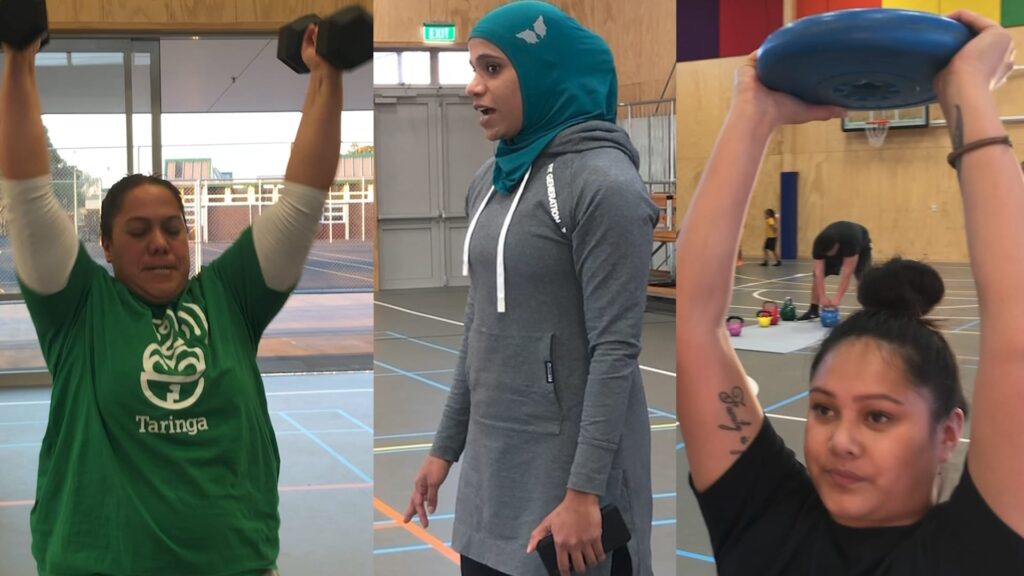
Te Kura Māori o Nga Tapuwae in Mangere has taken a proactive approach mobilising key health champions within the school to maintain wellbeing in the workplace.
The COVID-19 pandemic had an unprecedented impact, particularly on teachers who were under pressure to adapt to virtual classrooms throughout lockdown.
Transitioning back to pre-COVID-19 routines has the potential to cause stress and anxiety for staff, if not properly managed.
“After lockdown we workshopped what wellness looks like and how our Kura could support this kaupapa,” says Tracey-Lee Walker, Te Kura Māori o Nga Tapuwae’s Tai Tuara Māori.
Wellness has a significant impact on a person’s productivity so when you show your employees you care about their health and wellbeing they will be more engaged, and a positive workplace culture boosts performance,” says Walker.
“We also asked staff what support and activities they need and this is how the fitness classes came about,” she says.
The classes are led by Mathematics teacher Mariam Bahar, originally from Sri Lanka who is studying to become a personal trainer, watch the interview here.
“I’m passionate about health and fitness. I’ve been doing crossfit for about two years so I was the first one to put my hand up and take a class.” says Bahar.
A Ministry of Social Development report shows the integration of physical activity and mātauranga Māori (knowledge) in their natural environment encourages whānau to move and play more.
This is something Mariam can identify with through her Sri Lankan heritage.
“There are many tikanga (customary practices) that’s similar to Sri Lankan. Māori have their own set of values which I can comfortably sit within,” Bahar adds.
“The indigenous framework is very apparent here so when you leave Te Kura, you think ‘that’s not how it’s supposed to be done’. It’s made a big impact on my life and my thinking. I would love to see it applied everywhere,” she says.
Western health systems however, have generally taken an individualistic approach to health, which is often reflected in the design of research seeking to address health concerns.

Healthy families South Auckland Indigenous Lead Anaru Ah Kew says a ‘systems return’ approach, grounded in cultural knowledge and concepts of wellbeing is key in attaining good health for Māori, like what’s happening at Te Kura Māori o Nga Tapuwae.
“Here is an initiative that is testing what different and new looks like for Māori in South Auckland,” says Ah Kew.
“People don’t just jump on a bandwagon, real systems change takes time to build the kaupapa and culture. But once you see the interest, you’ll start to see other things,” he says.
The fitness classes which run every Tuesday and Thursday after school help staff to not only become active but also look at lifestyle changes.
“The staff have been really enthusiastic, some are now looking at their diet, lifestyle and setting long-term goals,” says Bahar.